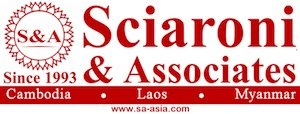
Simon Burlinson,
Legal Advisor
Simon is an English-qualified solicitor with extensive experience advising local, regional and international clients on cross-border corporate transactions, corporate restructurings, foreign direct investment in Cambodia and the tax structuring and compliance issues related thereto. Simon’s particular areas of expertise include advising international clients in the pharmaceutical, telecommunications, IP/IT, insurance, petrochemical and plant and seed breeding sectors on all aspects of local law compliance. He speaks English and French.
Instruction No. 21406 dated 20 December 2016 on the Request for VAT Input Credit and Instruction No. 21606 dated 26 December 2016 on the Use of Sequential-Invoice-Numbers for Taxpayers under the Real Regime
9 February 2017
On 20 December 2016 the General Tax Department (“GDT”) issued Instruction No. 21406 relating to Requests for VAT Input Credit (“Instruction 21406”) in accordance with Article 40, 77, 79 and 98 of the Law on Taxation (“LoT”), Notification No. 024, dated 16 August 2006 on the Use of Invoices for Real Regime Taxpayers, Instruction No. 1127, dated 26 January 2016 on the Use of Invoices for Real Regime Taxpayers (“Instruction 1127”), and Prakas No. 496, dated 06 April 2016 on Tax Registration.
The purpose of Instruction 21406 is to inform all enterprises requesting VAT input credit to follow the tax registration regulations and provide the appropriate VAT invoice.
When filing their monthly tax returns all enterprises must attach the appropriate invoice in accordance with Instruction 1127 and the invoice template attached thereto. Failure to do so may be deemed obstruction of the implementation of the tax law (pursuant to Article 128 of the LoT) which is punishable by imprisonment from one month to one year and/or a fine of between KHR 10 million-20 million (approximately USD 2,500-5,000).
Please note that enterprises which have not updated their tax registration information with the GDT (as required by Prakas 496) are not allowed to make a request for VAT input credit until they have done so.
Additionally, on 26 December 2016 the GDT issued Instruction No. 21606 on the Use of Sequential Invoice Numbers for Taxpayers under the Real Regime (“Instruction 21606”). The purpose of Instruction 21606 is to instruct all enterprises to use and apply sequential numbers to all invoices in order to assist, strengthen and ensure the transparency and effectiveness of tax collection management.
Enterprises are instructed as follows:
-
To use sequential invoice numbers for one year and to keep the invoices as documentation for: (i) 10 years for large and medium taxpayers; and (ii) three years for small taxpayers.
-
Sequential invoice numbers can include letters to identify the head office or branch office that issued the invoice (for example, PPCI-0001, PPCI-0002, PPCI-0003,… and PPTI-0001, PPTI-0002, PPTI-0003, … or SRCI-0001, SRCI-0002, SRCI-0003, … and SRTI-0001, SRTI-0002, SRTI-0003, …). Taxpayers having branch office(s) must issue invoices separately for each branch and the head office and the invoice must be categorized into 2 types: tax invoice and commercial invoice.
-
Different letters are not allowed in a sequential invoice number which serve to classify, among others, customers, products, areas or activities.
-
Taxpayers issuing invoices by point-of-sale (“POS”) machines may issue sequential invoice numbers based on each POS machine. The invoice number must identify each POS machine and the taxpayer must report the number and identification of each POS machine to the GDT by the end of January 2017. Any changes to the number and/or identification of POS machines must subsequently be reported to the GDT.
Sciaroni & Associates Taxation Practice Group offers a full range of tax compliance, advisory and dispute resolution services, from the filing of monthly and annual tax returns and patent tax filings, tax registrations and structuring advice to conducting due diligence in corporate transactions and assisting clients with disputes involving the tax authorities. We advise many of our clients on tax optimization strategies and assist them during tax audits. At every stage of a company’s life, our advisers ensure clients are fully compliant with the dynamic field of taxation in Cambodia. . To our local clients we bring international standards of professional service and to our international clients we merge our understanding of local compliance and legislative practices with quality of service and financial information required for global business.
Sciaroni & Associates, one of Southeast Asia’s leading professional services and investment advisory firms, has been providing skilled counsel and knowledgeable business insights for over two decades. Based in Cambodia, with legal offices in Laos and Myanmar, our experienced team of advisors brings considerable general and sector-specific expertise to the challenges confronting companies doing business in emerging markets. We are proud that our clients comprise many of the world’s premier companies, banks, financial institutions, governments and global development organizations.
For more information please visit www.sa-asia.com or contact us at [email protected].




